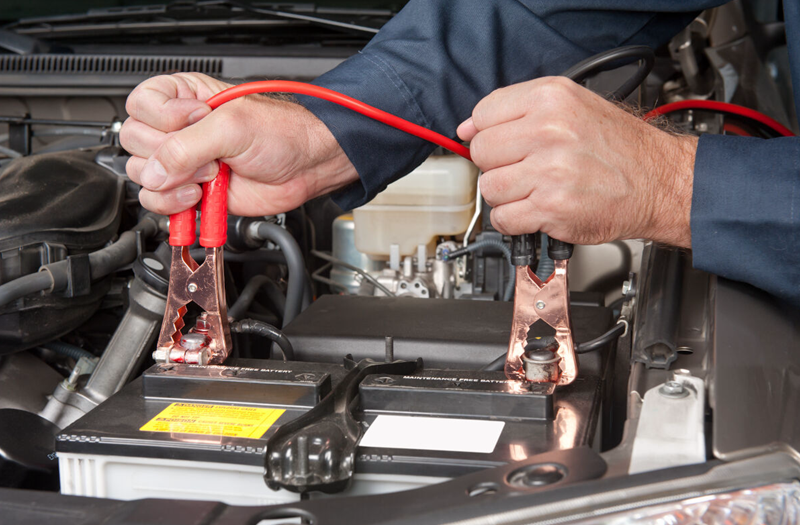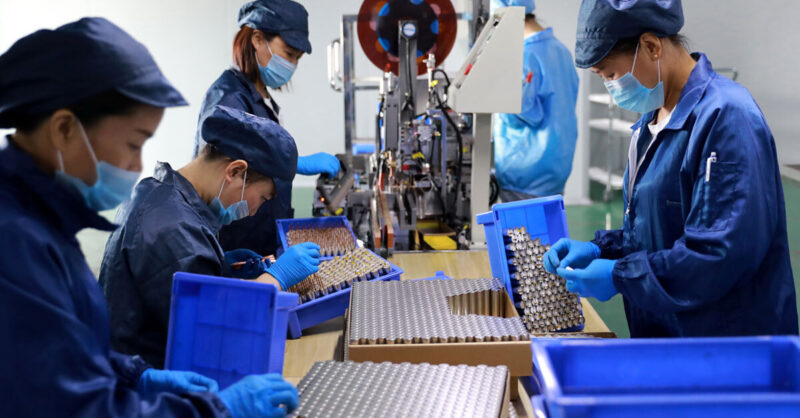Locomotive Starter Battery – Powering Up Your Train for Efficient Transportation.
Introduction
The locomotive starter battery is an essential component of today\’s railway system. It is responsible for providing the initial power to start the locomotive engine, which then powers the train. The battery also provides backup power in case of a power failure or emergency. In this article, we will discuss the role of the locomotive starter battery in powering up trains for efficient transportation.
What is a Locomotive Starter Battery?
A locomotive starter battery is a deep-cycle battery designed to provide a high level of power for a short duration of time. It is different from a regular car battery, which is designed for cranking the engine and providing a small amount of power to the electrical system. The locomotive starter battery is much larger and provides much more power, typically in the range of several hundred to several thousand amperes.
How does a Locomotive Starter Battery Work?
The locomotive starter battery works by converting chemical energy stored in the battery cells into electrical energy. This is done through a process called electrochemical reaction, which involves the movement of electrons from one electrode to another. The battery cells contain two electrodes – a positive electrode (anode) and a negative electrode (cathode) – and an electrolyte solution that allows the movement of ions between the electrodes.
When the battery is connected to the locomotive engine, the electrical load from the engine draws power from the battery. This causes a chemical reaction to occur in the battery cells, which releases electrons from the anode and sends them to the cathode. The movement of electrons generates a flow of electrical current, which powers the engine and the train.
Why is a Locomotive Starter Battery Important?
The locomotive starter battery is crucial for the efficient operation of the railway system. Without it, the locomotive engine would not be able to start, and the train would not be able to move. In addition, the battery provides backup power in case of a power failure or emergency, ensuring that the train can continue to operate smoothly.
The use of a locomotive starter battery also helps to reduce emissions and improve fuel economy. By providing initial power to the engine, the battery reduces the load on the alternator and the engine, which reduces fuel consumption and emissions. This helps to make trains more environmentally friendly and cost-efficient.
Conclusion
The locomotive starter battery is a critical component of the railway system. It provides the initial power to start the engine and powers the train, ensuring efficient and reliable transportation. The battery also provides backup power in case of a power failure or emergency, making trains more reliable and safe. As the railway industry continues to evolve and become more environmentally conscious, the use of a locomotive starter battery will become even more important in driving innovation and sustainability.
-
 Lithium Iron Phosphate (LiFePO4) batteries are gaining popularity in various industries due to their unique characteristics. These batteries are widely used in electric vehicles, renewable energy storage systems, and emergency power backup systems. In this article, we will discuss the advantages and applications of Lithium Iron Phosphate Battery Packs. Advantages of Lithium Iron Phosphate Battery Pack 1. High...En savoir plus
Lithium Iron Phosphate (LiFePO4) batteries are gaining popularity in various industries due to their unique characteristics. These batteries are widely used in electric vehicles, renewable energy storage systems, and emergency power backup systems. In this article, we will discuss the advantages and applications of Lithium Iron Phosphate Battery Packs. Advantages of Lithium Iron Phosphate Battery Pack 1. High...En savoir plus -
 Lithium iron phosphate batteries, also known as LiFePO4 batteries, are a type of rechargeable battery that has gained popularity in recent years due to their high energy density, long cycle life, and safety compared to other types of lithium-ion batteries. However, as with any new technology, the cost of lithium iron phosphate batteries has been a limiting factor for widespread...En savoir plus
Lithium iron phosphate batteries, also known as LiFePO4 batteries, are a type of rechargeable battery that has gained popularity in recent years due to their high energy density, long cycle life, and safety compared to other types of lithium-ion batteries. However, as with any new technology, the cost of lithium iron phosphate batteries has been a limiting factor for widespread...En savoir plus -
 Introduction In recent years, the demand for efficient and reliable power storage solutions has been on the rise. This is particularly true in industries such as renewable energy, electric vehicles, and telecommunications. One technology that has gained significant attention is the Lithium Iron Phosphate (LiFePO4) 48V battery. This article aims to explore the features, advantages, and applications of this battery...En savoir plus
Introduction In recent years, the demand for efficient and reliable power storage solutions has been on the rise. This is particularly true in industries such as renewable energy, electric vehicles, and telecommunications. One technology that has gained significant attention is the Lithium Iron Phosphate (LiFePO4) 48V battery. This article aims to explore the features, advantages, and applications of this battery...En savoir plus -
 Introduction: In recent years, there has been a rapid advancement in the field of robotics, particularly in the development of smart mobile robots. These robots are becoming increasingly prevalent in various industries, from manufacturing and logistics to healthcare and agriculture. One of the key factors that contribute to the efficiency and performance of these robots is the power source they...En savoir plus
Introduction: In recent years, there has been a rapid advancement in the field of robotics, particularly in the development of smart mobile robots. These robots are becoming increasingly prevalent in various industries, from manufacturing and logistics to healthcare and agriculture. One of the key factors that contribute to the efficiency and performance of these robots is the power source they...En savoir plus -
 Are you looking for a reliable power storage solution? Look no further than the High-Capacity 12V 100Ah LiFePO4 lithium battery. This advanced battery technology offers several benefits over traditional lead-acid batteries, including longer lifespan, faster charging, and more efficient power delivery. At the heart of the High-Capacity 12V 100Ah LiFePO4 lithium battery is advanced lithium iron phosphate (LiFePO4) chemistry....En savoir plus
Are you looking for a reliable power storage solution? Look no further than the High-Capacity 12V 100Ah LiFePO4 lithium battery. This advanced battery technology offers several benefits over traditional lead-acid batteries, including longer lifespan, faster charging, and more efficient power delivery. At the heart of the High-Capacity 12V 100Ah LiFePO4 lithium battery is advanced lithium iron phosphate (LiFePO4) chemistry....En savoir plus -
 In recent years, there has been a significant increase in the use of mobile robots across various industries and sectors. These robots are designed to perform tasks autonomously, without the need for human intervention. One crucial component that powers these robots and enables them to operate for extended periods is the lithium-ion battery. Lithium-ion batteries have revolutionized the field...En savoir plus
In recent years, there has been a significant increase in the use of mobile robots across various industries and sectors. These robots are designed to perform tasks autonomously, without the need for human intervention. One crucial component that powers these robots and enables them to operate for extended periods is the lithium-ion battery. Lithium-ion batteries have revolutionized the field...En savoir plus -
 A new lithium 12V starter battery has hit the market, promising to revolutionize the world of portable power. With its unique combination of lightweight construction and long-lasting performance, this battery is sure to be a game-changer for anyone who relies on battery power in their daily lives. The lithium 12V starter battery is designed to provide reliable power for...En savoir plus
A new lithium 12V starter battery has hit the market, promising to revolutionize the world of portable power. With its unique combination of lightweight construction and long-lasting performance, this battery is sure to be a game-changer for anyone who relies on battery power in their daily lives. The lithium 12V starter battery is designed to provide reliable power for...En savoir plus

